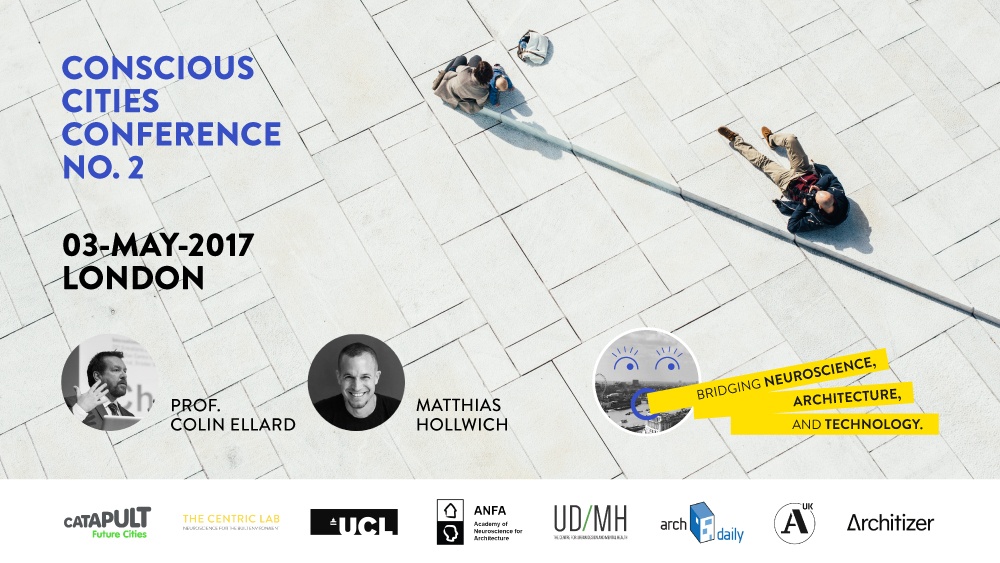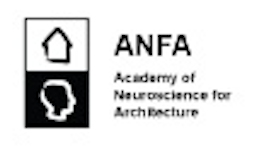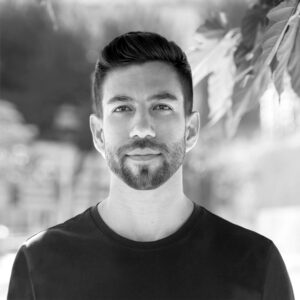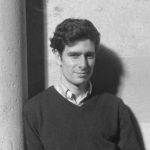Conscious Cities Conference No. 2: Bridging Neuroscience, Architecture and Technology is a full-day event, taking place on Wednesday, 03 May 2017 (9:00 to 18:00) at One Sekforde Street, London.
Our previous conference examined the relationship between neuroscience and architecture. This year’s conference will disseminate and unify the different industries and elements needed to build a Conscious City, that is responsive to human activity and needs.
The day will open with keynote speakers representing: Neuroscience, Architecture, and the intersection of both.
From there, the conference will address four themes, each presented and discussed by a panel of experts from academia and industry (detailed further below):
- What Does Neuroscience Teach Us About the Built Environment?
- How Can We Use High Technology in the Built Environment?
- Creating Conscious Design: How Does Behavioural Insight Affect Architecture and Planning?
- Building a Conscious City: The Role of Governance and Industry.
A printed publication – Conscious Cities Anthology No.2 – will be given to all conference attendees. It will contain papers and thought pieces by the conference speakers.
Conference Thematics
What Does Neuroscience Teach Us About the Built Environment?
For the past 15 years neuroscience has been instrumental in discovering how the built environment, specifically cities affect the people who inhabit them. We now understand, for example, that a correlation exists between urban environments and stress, resulting in spectrum of mental disorders. In this section we will be discussing the latest in neuroscience research in the built environment.
How Can We Use High Technology in the Built Environment?
Artificial Intelligence and Virtual Reality are significantly impacting how we design, imagine, and use the built environment. This theme will explore these emerging technologies as well as other high tech tools; low carbon, model simulators, and computer software like depthmapX. We will debate the goals of technology and how it can facilitate the creation of more empathetic, dynamic, and adaptable spaces.
Creating Conscious Design: How Does Behavioural Insight Affect Architecture and Planning?
Whilst the concept of Conscious Design has been newly coined, there are already many examples of industry professionals creating spaces and places with greater awareness towards their users’ needs. In this theme we will be exploring case studies which use behavioural insight, new tools, and technology to implement conscious design elements.
Building a Conscious City: The Role of Governance and Industry
How do policies and market forces affect the built environment? We will be addressing issues concerning professional responsibility, confidentiality, consent, risk and vulnerability. What are the key considerations of decision-makers and how do those relate to creating a better built environment?

















